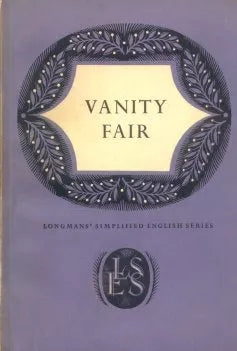Longman
William Makepeace Thackeray: Vanity Fair
William Makepeace Thackeray: Vanity Fair
Precio habitual
$57.200,00 ARS
Precio habitual
Precio de oferta
$57.200,00 ARS
Precio unitario
/
por
Los gastos de envío se calculan en la pantalla de pago.
No se pudo cargar la disponibilidad de retiro
Thackeray’s fame as a writer began in the late 1830s with The Yellowplush Papers (1837-8) but it is his first major novel, Vanity Fair, which appeared in monthly parts 1847-8 that he is most associated with now. Named after the fair set up by Beelzebub in Bunyan’s Pilgrim’s Progress, the novel takes place during the Napoleonic Wars and concerns the lives of two starkly contrasted girls: Becky Sharp, orphaned and poor but ingenious; and Amelia Sedley, sheltered daughter of a rich City merchant. These two meet at Miss Pinkerton’s Academy for young ladies, the former driven by social ambition and the latter by her delicate heart. Sharp’s adventures begin with an attempt to marry Jos Sedley, Amelia’s brother, who is rich but dim. She soon finds her way to the Crawley household as a governess and marries Rawdon, the second son of Sir Pitt Crawley, although the father himself had proposed to her. Rawdon is, typically for the novel, an ignorant and self-indulgent man. However, Becky moves on further to become the mistress of Lord Steyne and finds her place in society almost accidentally in the end. Miss Sedley’s story is less intriguing, largely due to useless first husband Osborne and moral by uninteresting second love Dobbin. Thackeray’s portrait of the upper classes in the early nineteenth century is consistently disparaging and negative but is entertaining for its vile characters and hopeless, loveless relationships.
The incomparable Miriam Margolyes applies her story-telling and histrionic gifts to this classic satire of two young English women, one bad but clever and the other good but stupid, who come to no good during the Napoleonic Wars. The abridgers have cut a bit too much at the expense of the characterizations. Although sounding somewhat forced, Margolyes, as always, gives an excellent performance.
The incomparable Miriam Margolyes applies her story-telling and histrionic gifts to this classic satire of two young English women, one bad but clever and the other good but stupid, who come to no good during the Napoleonic Wars. The abridgers have cut a bit too much at the expense of the characterizations. Although sounding somewhat forced, Margolyes, as always, gives an excellent performance.
Share


